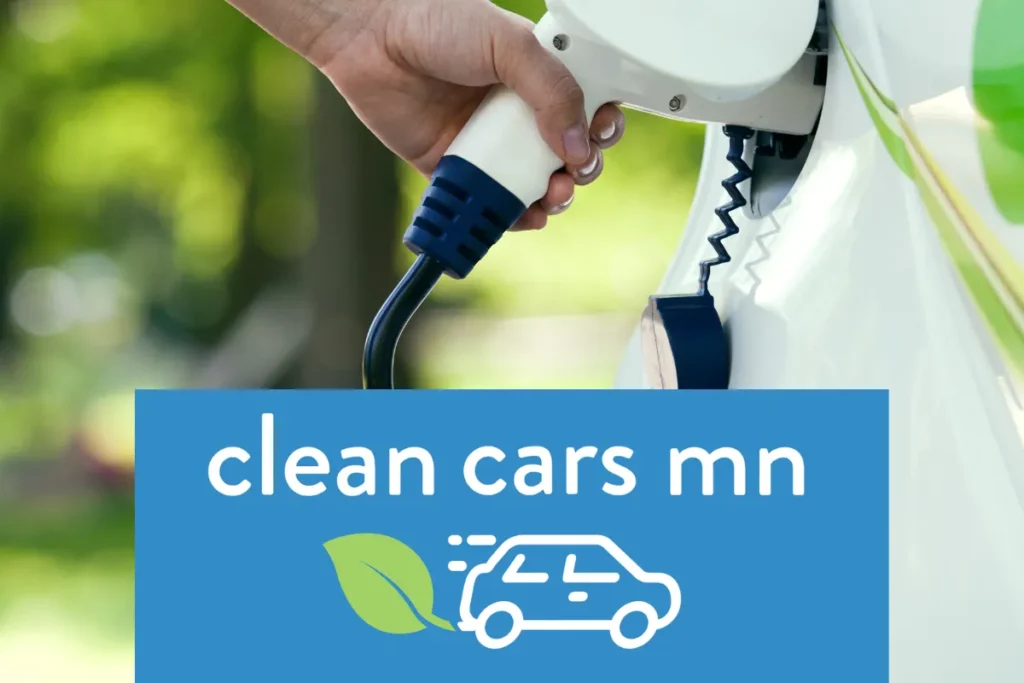In September, Governor Walz announced that Minnesota will adopt Clean Car Standards. The Minnesota Pollution Control Agency (MPCA) is now responsible for writing the rule to make this happen.
Throughout late October and early November, MPCA travelled around Minnesota to hear from you and to answer your questions about a Clean Car Stand for Minnesota. MPCA needs to know that ALL Minnesotans, especially rural Minnesotans, care about reducing climate pollution, need more vehicle options with better mileage, and want to improve our air quality.
Talking Points on Why Clean Cars Minnesota (PDF).
Big Oil is already spending political dollars on misinformation campaigns to try to prevent this rule from being adopted.
Three simple things you can do:
-
- Learn about the Clean Cars Minnesota campaign.
- Tell the Minnesota Pollution Control Agency (MPCA) why it is important for you as a member of the CURE network to support the Clean Car Standards.
- Share this information with those you know have an interest in moving Minnesota to Clean Transportation.
Thank you for being a leading rural voice in supporting Clean Cars Minnesota!
Why Clean Cars Minnesota?
Clean Cars Minnesota Benefits Rural Communities
-
-
- Rural Minnesotans often live further away from jobs, stores, and healthcare providers. They end up driving more to get to work and perform daily errands. Having more options for cars and trucks with lower emissions and better mileage will directly benefit these folks the most-saving money at the gas pump and decreasing their contributions to climate change.
- Rural Electric Co-ops power 85% of the Minnesota landscape. Electric co-ops are a critical part of developing a clean transportation system. They should lead the way in creating the Electric Vehicle (EV) charging infrastructure across greater Minnesota. Across Greater, Minnesota co-op member-owners will benefit from clean, affordable, and reliable transportation options. Range anxiety can be eliminated by building a robust charging network. Minnesota’s electric co-ops will benefit from a new income stream. Because electric co-ops are member-owned, the benefits will be shared across our local communities.
- Farmers who are struggling in the current ag economy can benefit by adding another “crop” to their farms- electricity-produced from solar arrays and wind turbines. The health of all Minnesotans will be the biggest winner-especially the health of the most vulnerable Minnesotans. These are the people who currently deal with the worst effects of air pollution and are impacted first by a rapidly changing climate.
-
Clean Cars Minnesota Benefits Health
-
-
- Cleaner cars means cleaner air. Air pollution from sources like cars and trucks is full of chemicals that harm human health and contributed to 4,000 deaths last year in our state alone. Communities overburdened by freeway traffic are especially at risk.
- Communities of color and low-income communities currently bear the brunt of negative health impacts from air pollution. Cleaning up emissions from transportation is an environmental justice issue.
- Children, the elderly, and those with preexisting conditions are the most vulnerable to the harmful effects of vehicle emissions. Clean Cars will dramatically reduce these emissions and help protect our most vulnerable neighbors.
- Burning less diesel and gas means cleaner water, protecting the 10,000 lakes we love.
-
Clean Cars Minnesota Benefits Climate
-
-
- Cars and trucks on Minnesota roads are the #1 source of climate change-causing pollution in our state and nationally.
- Minnesotans are already feeling the impacts of a changing climate. Our winters are warming 13 times faster than our summers and extreme weather is becoming more frequent. If we take no action, Minnesota is on track to lose our boreal forests by 2070.
- If we are not proactive, the effects of climate change will make existing economic and racial inequality much worse. Clean Car Standards are a critical part of a multi-faceted strategy to ensure that Minnesotans of all races and backgrounds are included in an equitable transition of our transportation, energy, and economy.
-
Clean Cars Minnesota Provides Consumer Choice
-
-
- According to the latest consumer report, about 6 in 10 prospective car buyers in Minnesota are interested in electric vehicles, and 30 percent say they would consider buying or leasing one within the next two years.
- Of the approximately 51,000 light-duty vehicles on dealer lots in Minnesota, only about 300 of those are electric vehicles. This is because zero-emission vehicles go to the states that have Clean Car Standards. Clean Cars Minnesota will make more types of vehicles available to purchase for Minnesota consumers.
- Zero-emission vehicles can save Minnesotans money, with lower maintenance and operating costs. Zero emission vehicles rely on electricity, which has a lower and less volatile price than gasoline, and they do not require oil changes and many other types of maintenance.
-


